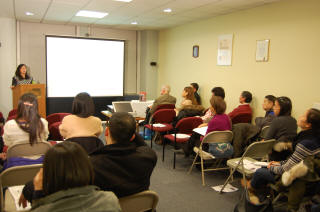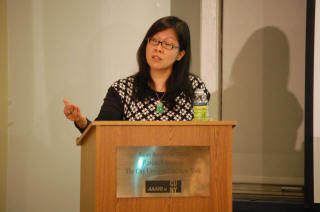
Transnationalism refers to the phenomenon of immigrants maintaining connections to their country of origin, and employing a dual frame of reference to evaluate their experiences and outcomes in the country in which they have settled. How does transnationalism matter in the identities among the second generation, e.g., individuals who were born in the United States, or migrated by late childhood? In this presentation, Dr. Vivian Louie examines this question among second generation Dominicans and Chinese who have grown up in strong transnational fields and had parents who want them to participate in the homeland imaginary. The focus is on transnational orientations and/or practices among second generation individuals with particular attention to generational status, class, ethnicity, gender, and race.


